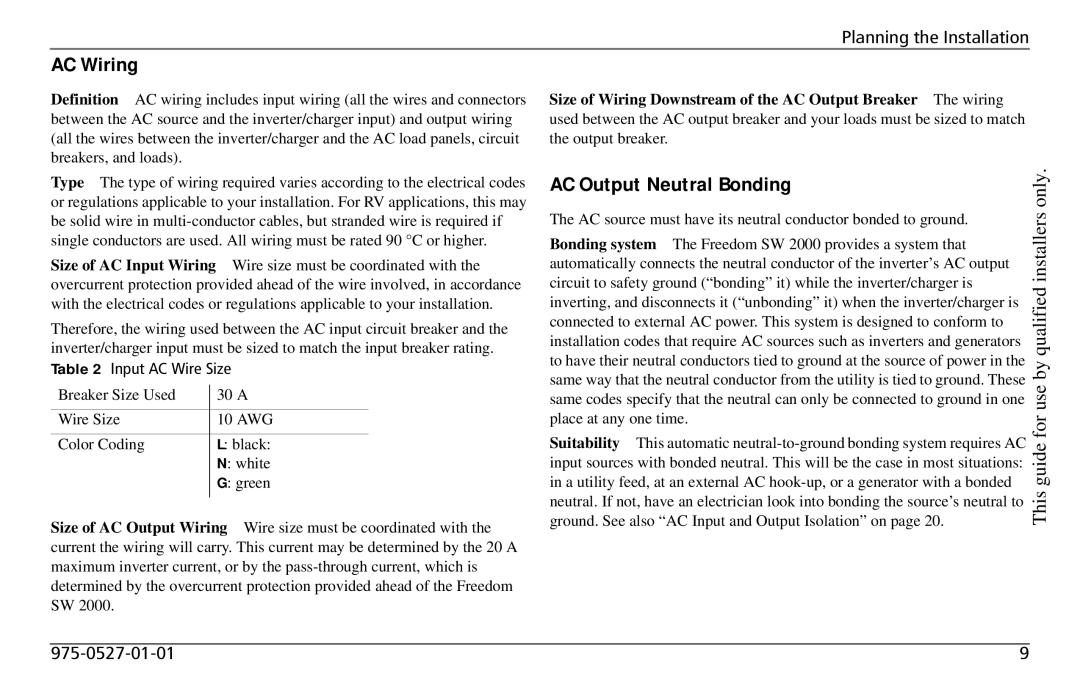Planning the Installation
AC Wiring
Definition AC wiring includes input wiring (all the wires and connectors between the AC source and the inverter/charger input) and output wiring (all the wires between the inverter/charger and the AC load panels, circuit breakers, and loads).
Type The type of wiring required varies according to the electrical codes or regulations applicable to your installation. For RV applications, this may be solid wire in
Size of AC Input Wiring Wire size must be coordinated with the overcurrent protection provided ahead of the wire involved, in accordance with the electrical codes or regulations applicable to your installation.
Therefore, the wiring used between the AC input circuit breaker and the inverter/charger input must be sized to match the input breaker rating.
Table 2 Input AC Wire Size
Breaker Size Used | 30 A |
Wire Size | 10 AWG |
Color Coding | L: black: |
| N: white |
| G: green |
|
|
Size of AC Output Wiring Wire size must be coordinated with the current the wiring will carry. This current may be determined by the 20 A maximum inverter current, or by the
Size of Wiring Downstream of the AC Output Breaker The wiring used between the AC output breaker and your loads must be sized to match the output breaker.
AC Output Neutral Bonding | only. | |
| ||
The AC source must have its neutral conductor bonded to ground. | installers | |
Bonding system The Freedom SW 2000 provides a system that | ||
| ||
automatically connects the neutral conductor of the inverter’s AC output |
| |
circuit to safety ground (“bonding” it) while the inverter/charger is | qualified | |
inverting, and disconnects it (“unbonding” it) when the inverter/charger is | ||
| ||
connected to external AC power. This system is designed to conform to |
| |
installation codes that require AC sources such as inverters and generators |
| |
to have their neutral conductors tied to ground at the source of power in the | by | |
same way that the neutral conductor from the utility is tied to ground. These | ||
|
same codes specify that the neutral can only be connected to ground in oneuse | ||
place at any one time. | for | |
Suitability This automatic | ||
guide | ||
input sources with bonded neutral. This will be the case in most situations: | ||
| ||
in a utility feed, at an external AC | This | |
neutral. If not, have an electrician look into bonding the source’s neutral to | ||
ground. See also “AC Input and Output Isolation” on page 20. | ||
9 |
